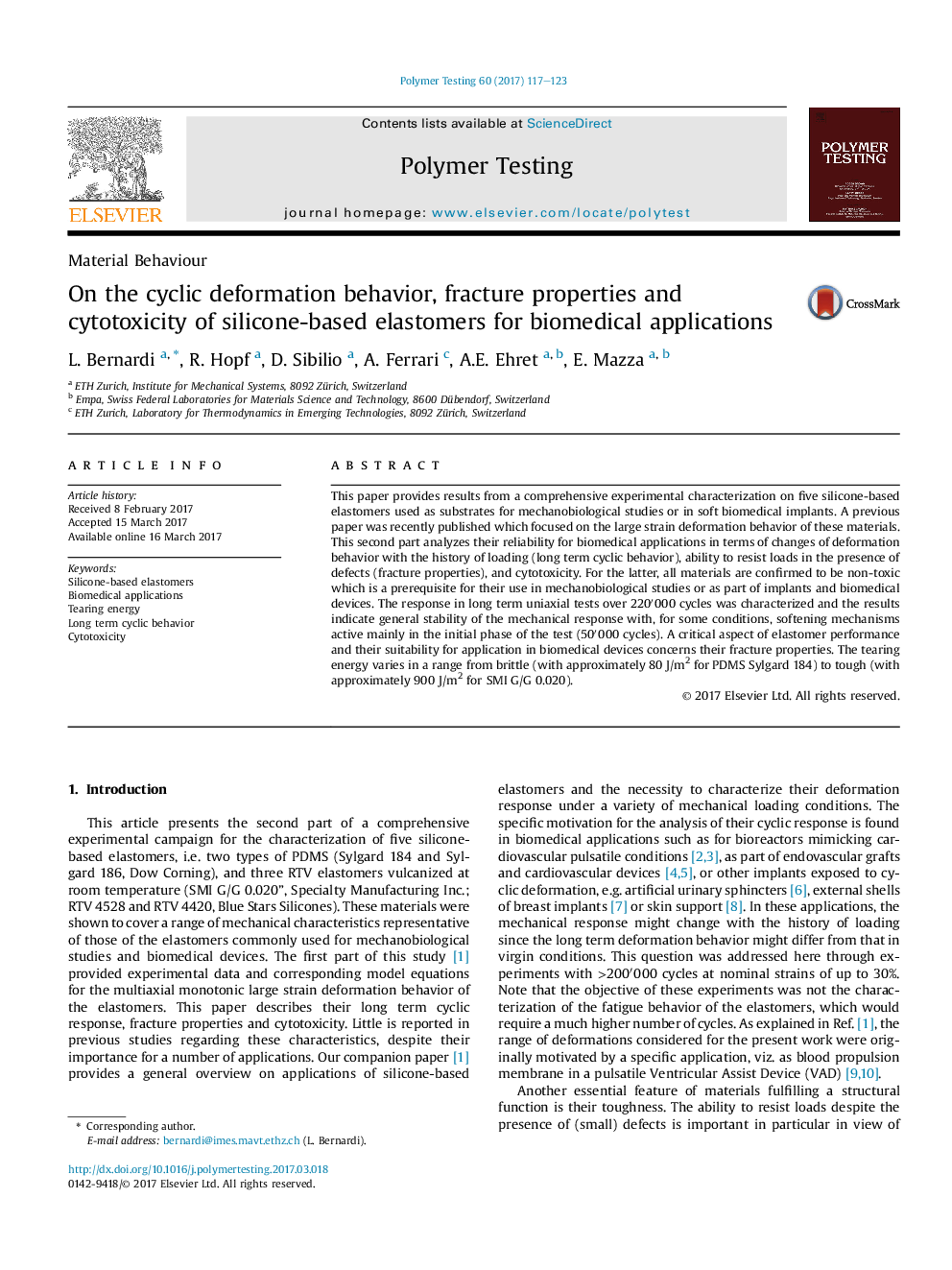| Article ID | Journal | Published Year | Pages | File Type |
|---|---|---|---|---|
| 5205427 | Polymer Testing | 2017 | 7 Pages |
Abstract
This paper provides results from a comprehensive experimental characterization on five silicone-based elastomers used as substrates for mechanobiological studies or in soft biomedical implants. A previous paper was recently published which focused on the large strain deformation behavior of these materials. This second part analyzes their reliability for biomedical applications in terms of changes of deformation behavior with the history of loading (long term cyclic behavior), ability to resist loads in the presence of defects (fracture properties), and cytotoxicity. For the latter, all materials are confirmed to be non-toxic which is a prerequisite for their use in mechanobiological studies or as part of implants and biomedical devices. The response in long term uniaxial tests over 220â²000 cycles was characterized and the results indicate general stability of the mechanical response with, for some conditions, softening mechanisms active mainly in the initial phase of the test (50â²000 cycles). A critical aspect of elastomer performance and their suitability for application in biomedical devices concerns their fracture properties. The tearing energy varies in a range from brittle (with approximately 80Â J/m2 for PDMS Sylgard 184) to tough (with approximately 900Â J/m2 for SMI G/G 0.020).
Related Topics
Physical Sciences and Engineering
Chemistry
Organic Chemistry
Authors
L. Bernardi, R. Hopf, D. Sibilio, A. Ferrari, A.E. Ehret, E. Mazza,
